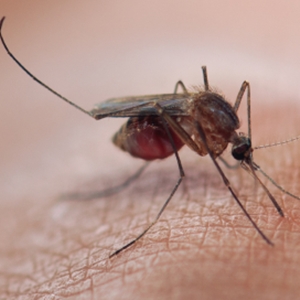
Read: What is global warming?
In a study of the mosquito-borne disease that infects around 220 million people a year, researchers from Britain and the United States found what they describe as the first hard evidence that malaria creeps to higher elevations during warmer years and back down to lower altitudes when temperatures cool.
More severe and fatal infections
This in turn "suggests that with progressive global warming, malaria will creep up the mountains and spread to new high-altitude areas," said Menno Bouma, an honorary clinical lecturer at the London School of Hygiene & Tropical Medicine (LSHTM).
And because people who live in these areas have no protective immunity because they are not used to being exposed to malaria, they will be particularly vulnerable to more severe and fatal cases of infection, he added.
According to World Health Organisation (WHO) data, malaria infected around 219 million people in 2010, killing around 660 000 of them – the vast majority in sub-Saharan Africa.
But robust figures are hard to establish for a disease that affects mainly poor communities in rural areas of developing countries, and some global health experts say the annual malaria death toll could be double that.
Read: Calculating climate change and co-evolution
Bouma's study, published in the journal Science, stretched back more than 20 years to when the LSHTM first collected data on malaria and climate in the Debre Zeit area of central Ethiopia.
Neutralising the potential threat
It had been predicted that malaria as a disease could be especially sensitive to climate change, because both the Plasmodium parasites that cause it and the Anopheles mosquitoes that spread it thrive as temperatures warm, Bouma explained.
Some researchers have argued, however, that socio-economic improvements and more aggressive and effective mosquito-control efforts would have large enough positive effect on the spread and intensity of malaria to neutralise the potential threat of changing climates.
Seeking evidence, Bouma and colleagues from the University of Michigan analysed data from Ethiopia and Colombia, looking at malaria case records from the Antioquia region of western Colombia from 1990 to 2005 and from the Debre Zeit area of central Ethiopia from 1993 to 2005.
By excluding other factors that influence malaria case numbers, such as mosquito-control programmes, resistance to anti-malarial drugs and fluctuations in rainfall, they found that the median altitude of malaria cases shifted to higher levels in warmer years and back to lower levels in cooler years.
Indisputable evidence
This yielded "a clear, unambiguous signal that can only be explained by temperature changes", they said.
"This is indisputable evidence of a climate effect, said Mercedes Pascual from the University of Michigan. "Our findings . . . underscore the size of the problem and emphasise the need for sustained intervention efforts in these regions, especially in Africa."
The researchers noted that their work was limited to two countries on two continents, and suggested it should be replicated in more countries with malaria in highland regions before more general trends are assumed.
Read more:




 Publications
Publications
 Partners
Partners















